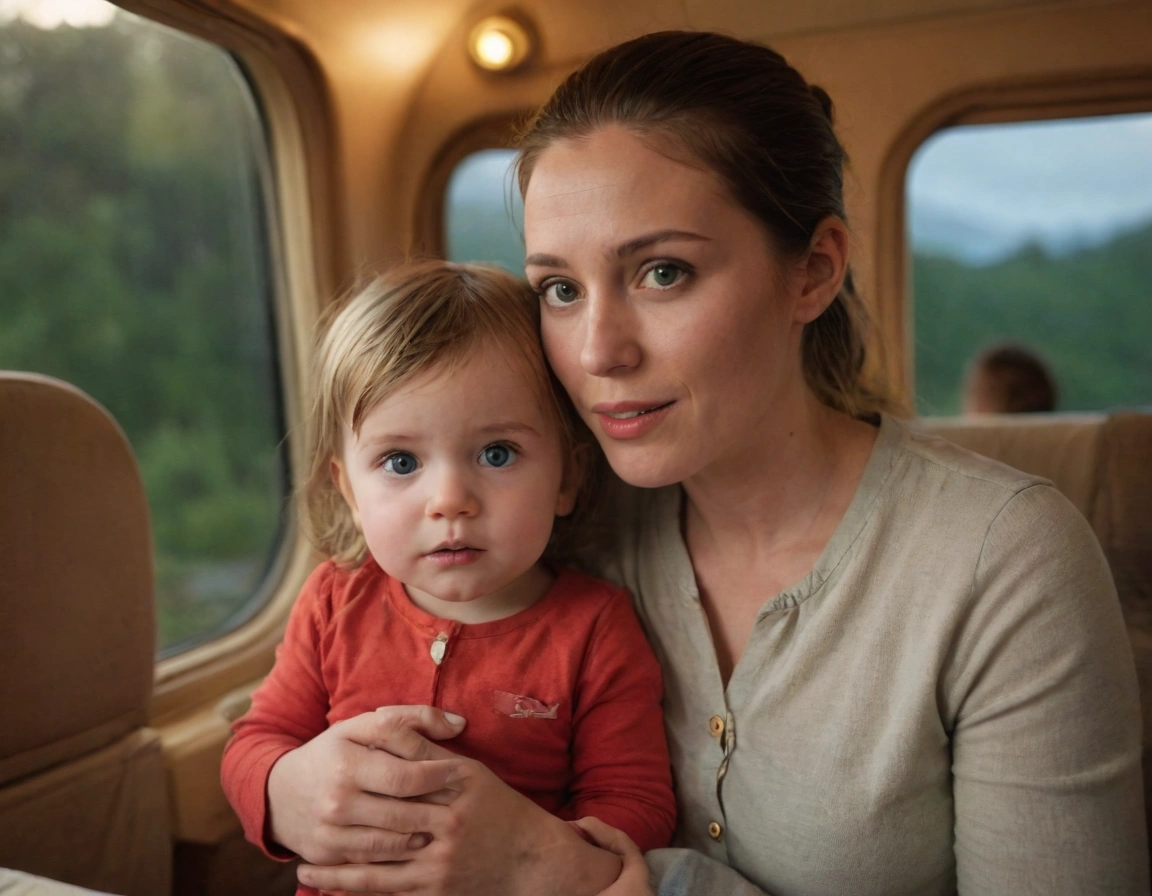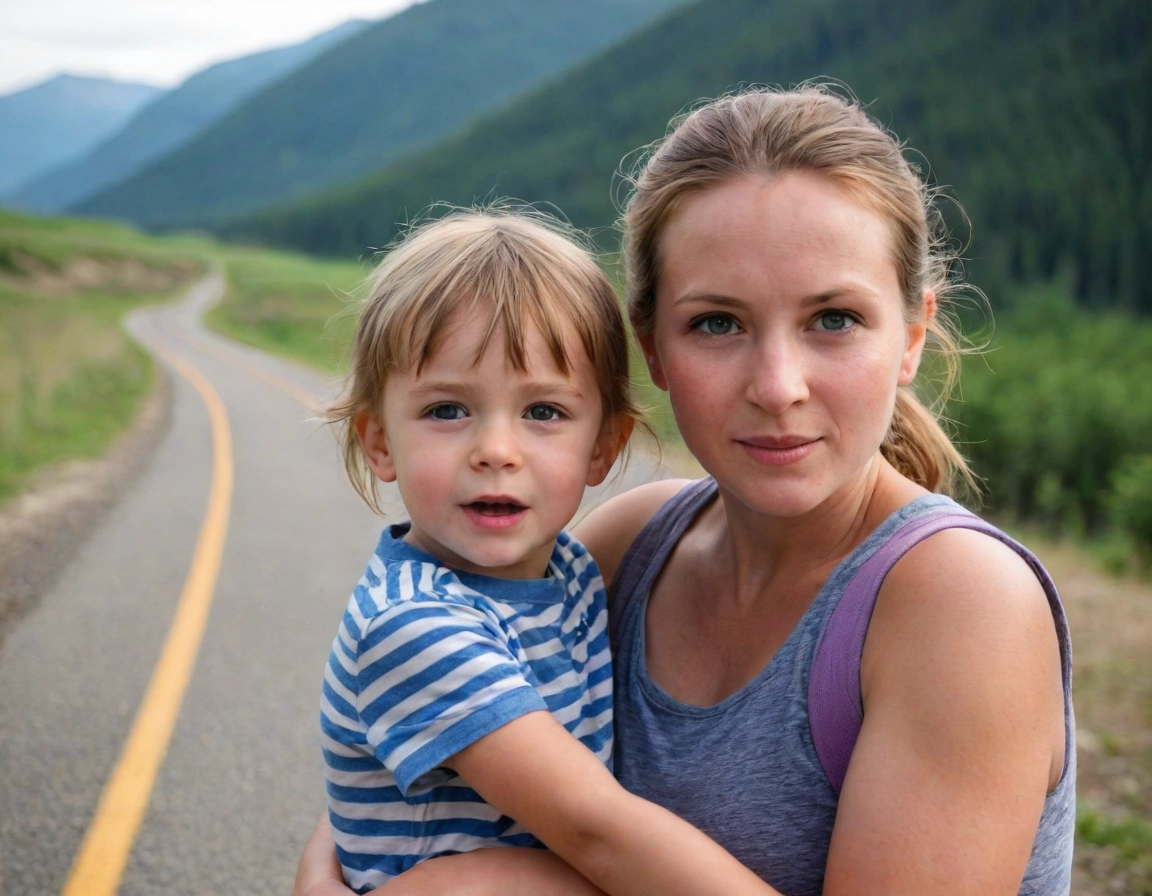Tips for traveling with kids can seem daunting, but with the right preparation and a touch of flexibility, family trips can become cherished adventures. Imagine, instead of tantrums and tears, a shared journey filled with laughter, learning, and lasting memories.
The key lies in transforming the challenge into an opportunity, turning potential travel woes into a rewarding experience for both parents and children.
This guide offers practical advice on everything from planning the perfect family-friendly itinerary to managing the inevitable moments of chaos. We’ll delve into the essentials of packing, choosing destinations, keeping kids entertained, and navigating the unique challenges of traveling with little ones.
Managing Behavior and Expectations
Traveling with kids can be a rewarding experience, but it can also be challenging, especially when it comes to managing their behavior. Setting clear expectations and boundaries, as well as employing effective strategies for handling tantrums and other challenging behaviors, are crucial for a smooth and enjoyable journey for everyone.
Setting Clear Expectations and Boundaries
Establishing clear expectations and boundaries is essential for managing children’s behavior while traveling. It provides a sense of structure and predictability, helping them understand what is expected of them.
Communicate Expectations: Before the trip, clearly communicate expectations to your children regarding their behavior, such as appropriate noise levels, following directions, and respecting personal space. Use age-appropriate language and provide specific examples to ensure they understand what is expected of them.
Set Rules and Consequences: Establish a set of rules for the trip and discuss the consequences of breaking them. These rules can include things like staying close to adults, not running in the airport, and being respectful of other travelers. Consequences can range from warnings to time-outs or missing out on planned activities.
Involve Children in Decision-Making: Whenever possible, involve children in making decisions related to the trip. This can help them feel a sense of ownership and responsibility. For example, let them choose what they want to pack, where they want to eat, or what activities they want to do.
Handling Tantrums and Challenging Behaviors
Tantrums and other challenging behaviors are a normal part of childhood, and they can be even more difficult to manage while traveling. Here are some strategies for handling these situations:
Stay Calm: It is important to stay calm and avoid reacting emotionally to tantrums. Your child will likely mirror your behavior, so if you remain calm and collected, it can help de-escalate the situation.
Address the Underlying Issue: Try to identify the underlying cause of the tantrum or challenging behavior. Is your child tired, hungry, or bored? Addressing the root cause can often help resolve the issue.
Use Positive Reinforcement: Instead of focusing on negative behavior, use positive reinforcement to encourage desired behavior. For example, praise your child for following directions, being patient, or staying calm.
Take a Break: If a situation becomes overwhelming, take a break from the activity or environment. Find a quiet place where your child can calm down and regroup.
Positive Reinforcement and Reward Systems
Positive reinforcement and reward systems can effectively motivate children and encourage good behavior while traveling.
Reward Charts: Use a reward chart to track good behavior and offer small rewards for achieving goals. This can be a fun way to encourage children to stay on track and make positive choices.
Special Privileges: Offer special privileges as rewards for good behavior. This could include extra screen time, a special treat, or a trip to a museum or amusement park.
Verbal Praise: Use verbal praise and positive reinforcement to acknowledge good behavior. This can be as simple as saying, “Good job following the rules!” or “I’m proud of you for being patient.”
Creating a Sense of Routine and Predictability, Tips for traveling with kids
Maintaining a sense of routine and predictability can help children feel more comfortable and secure while traveling.
Stick to a Schedule: Try to maintain a consistent sleep schedule and meal times, even when traveling. This can help children adjust to new environments and reduce stress.
Pack Familiar Items: Pack familiar items from home, such as a favorite blanket, stuffed animal, or book. This can provide comfort and a sense of normalcy in a new environment.
Use Visual Aids: Use visual aids, such as picture schedules or checklists, to help children understand the day’s activities and what to expect. This can provide a sense of control and reduce anxiety.
Outcome Summary: Tips For Traveling With Kids

Traveling with children doesn’t have to be a stressful ordeal. By embracing a little bit of planning, a lot of patience, and a healthy dose of humor, you can turn any trip into a family adventure. Remember, the most important thing is to create memories that will last a lifetime. So, pack your bags, grab your kids, and get ready for the journey of a lifetime.
Questions and Answers
What are some essential packing tips for traveling with kids?
Pack light, but pack smart! Bring essentials like snacks, entertainment, and extra clothing. Consider packing a small first-aid kit and any necessary medications. And don’t forget the essentials like sunscreen, insect repellent, and a travel-sized hand sanitizer.
How do I keep my kids entertained on a long car ride or flight?
Bring a variety of engaging activities, such as books, games, drawing materials, and electronic devices. Plan for breaks during long car rides and allow for time for kids to stretch their legs and run around. Consider packing snacks and drinks to keep them fueled up and happy.
What are some tips for managing challenging behavior on a trip?
Set clear expectations and boundaries before you leave. Pack rewards and positive reinforcement tools. Be prepared to take breaks when needed. And most importantly, remember that patience is key.





